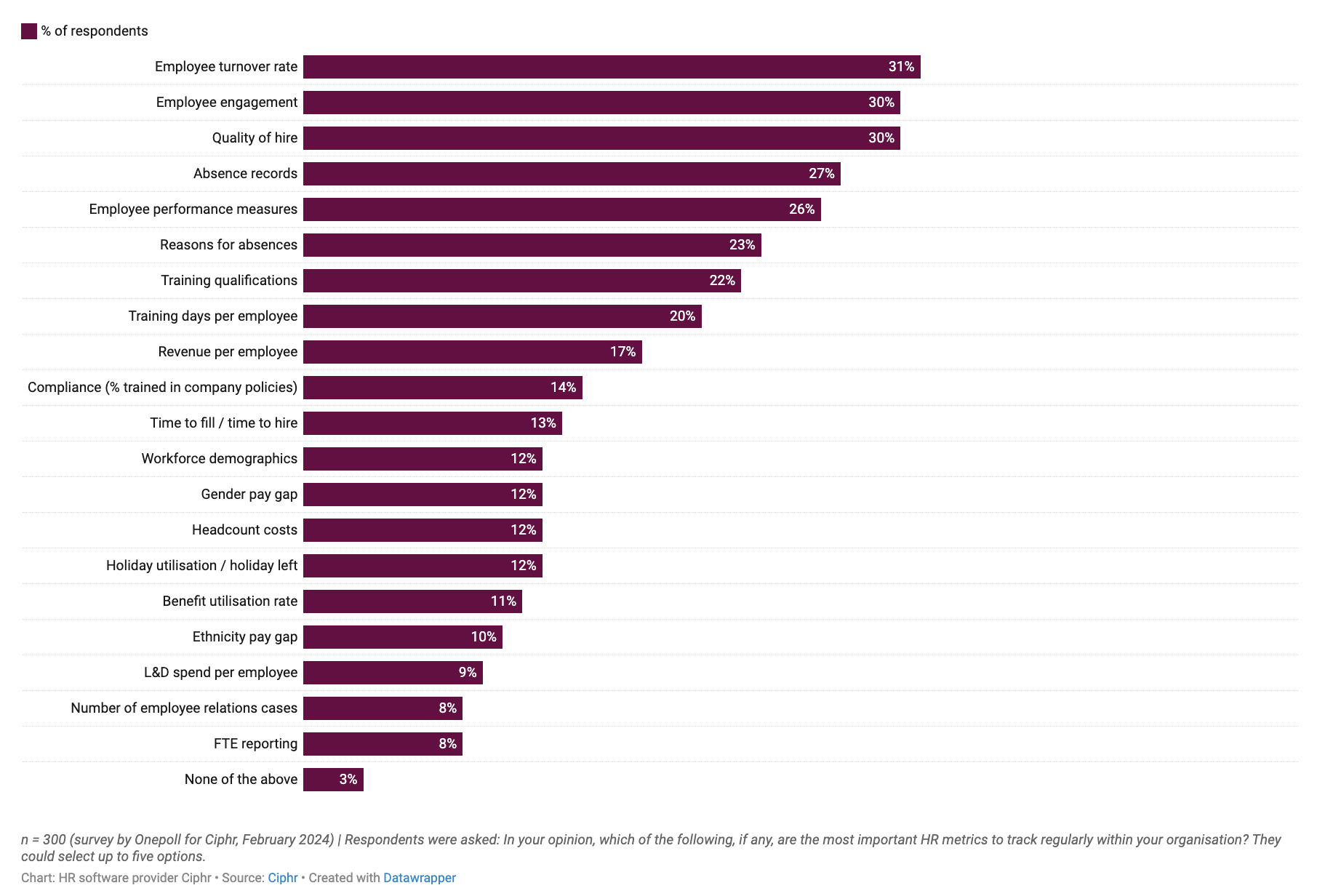
'It's important to recognise the impact that utilising people data can have on overall company performance,' says expert

Only a third of employers are taking full advantage of their people data to make informed decisions in the workplace, according to a new report.
Ciphr's survey among 300 HR professionals in the United Kingdom revealed that only 32% believe their organisation fully utilises people data for decision making.
And only 36% believe that their organisation actively seeks HR's input for business decisions.
Claire Williams, chief people and operations officer at Ciphr, said businesses that aren't fully using people data are being "incredibly short-sighted."
"It's important to recognise the impact that utilising people data can have on overall company performance," she said in a statement.
"People costs can be at least 80% of an organisation's P&L (profit and loss), so this data should be scrutinised and leveraged in every way possible – the same way many look at their sales, marketing, and pipeline data."

According to Williams, it would be very hard for business leaders to address employment challenges, such as retention or training needs, if they don't know where to focus their time and energy.
"As a business, could you easily identify your risks in relation to turnover or burnout, without in-depth workforce reporting?" she added. "HR teams need to be able to access and utilise robust people data to answer these questions. Especially when the HR profession is becoming more recognised at board-level for its strategic value."
But what kind of people data are necessary and should be tracked? According to the HR leaders, employee turnover rate is the most important metric to track, followed by employee engagement and quality of hires.
It is also important to look at absence records, employee performance measures, as well as reasons for absences.

Williams stated that people data is essential so businesses know how to identify and harness their talent to ensure they continue to grow and succeed.
"Having an improved understanding of your workforce can help instil business confidence that you can scale your people in line with forecast growth," she said.
"It can help inform workforce planning so that you can hire 'just in time' rather than once the capacity gap has started to impact your customers. It can give a clearer picture, backed by evidence, of how long it takes you to get new starters competent and ready to start making sales or servicing customers."